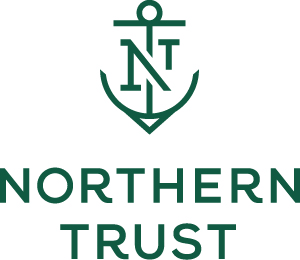
Opinions expressed in AGB blogs are those of the authors and not necessarily those of the institutions that employ them or of AGB.
The concept of sustainable investing is about bringing clarity to investment opportunities and risks resulting from financially relevant environmental, social, and governance (ESG) factors. We believe material environmental, social, and governance factors are prefinancial indicators that can affect a company’s future financial viability and investors’ long-term risk-adjusted investment returns. When managed well, they can position a company for success, and when mismanaged, they can result in significant risks. This concept is philosophically aligned with the mission of educational institutions, which are responsible for preparing the leaders of tomorrow. Indeed, universities and colleges are seeing engagement on sustainability topics across a number of dimensions: business schools are racing to build out social impact and sustainable business programs and classes;i campuses are integrating green and sustainable building practices into campus design;ii and students, faculty, and alumni at many institutions are pushing endowments to integrate sustainability into the investment process.
It should come as no surprise that endowments are digging into ESG topics and looking for guidance on how to consider and understand sustainability objectives and adopt them into their portfolios. The challenge many face, however, is figuring out how to progress toward implementation. The 2021 NACUBO-TIAA Study of Endowments found that while adoption of ESG strategies is still nascent, endowments are embracing the concept, with more than 80 percent of respondents reporting that they have incorporated ESG into their investment policy, an increase of 25 percent over 2020.iii Endowment respondents indicated that they are integrating ESG concepts into manager due diligence but flagged a number of barriers to moving forward with allocating to strategies. Notably, these respondents reported concerns around a lack of pooled fund capabilities and questions around potential adverse impacts on performance.
Investment committees starting on this path benefit from a defined process, beginning with board education, to serve as a guide and touchstone for moving forward. Like any meaningful project, if you can measure it, you can manage it, and establishing a clearly defined set of milestones can help drive the process forward. A robust process should start from a place of common understanding and awareness. Oftentimes, board members may have differing perspectives or understanding of the ESG investing space, so bringing in an external resource or trusted advisor to facilitate board education can be helpful. The dialogue at the board level should encompass questions around performance expectations, industry trends, and peer case studies to establish a common understanding of what sustainable investing is-—and what it isn’t. At this stage, the board can begin to identify which ESG approaches resonate with its organizational values and investment philosophy. The desired approach should nest into the board’s broader portfolio objectives, mindful of portfolio risk tolerance and performance objectives. These objectives can act as a touchstone throughout the process, providing structure to manager due diligence, strategy selection, and future considerations.
Along this process, service providers can offer additional tools, such as an analysis of the ESG exposures of the current portfolio. This may help inform and focus the board’s attention on a particular ESG theme, such as climate risk, or a particular asset class. The sustainable investing marketplace has grown quickly over recent years. In 2021, nearly 120 ESG pooled funds launched in the U.S. market, and another 24 launched in the first quarter of 2022.iv This growing suite of investment options means more accessible investment opportunities in active, passive, and quantitative styles. The challenge here may be in bringing clarity to which strategies are appropriate for a particular institution, given that these vehicles are offered at different price points and take differing approaches to considering ESG attributes in the investment process. This growing suite of vehicles opens up a broader opportunity set but also underscores the importance of thoughtful due diligence, leaning on the process the board has worked to define. Working with a trusted service provider may help to streamline resources and guide due diligence so the board can focus on those strategies that meet the cost, investment performance, and sustainability objectives it has outlined.
Despite significant interest in sustainable investing, there are a variety of hurdles to building a path toward implementation. By supporting education and defining a thoughtful perspective, the board can foster positive momentum, structure thoughtful conversations, and move through these challenges. Institutions may move at different speeds through these milestones. Some may move relatively quickly, while others may take longer at different stages in the process. Regardless of the pace, they will likely find efficiencies throughout the stages by starting with a common understanding and a defined process. We have found that fostering a strong foundation of board education and dialogue can provide structure to the implementation process, and ultimately an ability to successfully allocate.
IMPORTANT INFORMATION:
For Use with Institutional Investors and Financial Professionals Only. Not For Retail Use.
The information contained herein is intended for use with current or prospective clients of Northern Trust Investments, Inc. The information is not intended for distribution or use by any person in any jurisdiction where such distribution would be contrary to local law or regulation. Northern Trust and its affiliates may have positions in and may effect transactions in the markets, contracts and related investments different than described in this information. This information is obtained from sources believed to be reliable, and its accuracy and completeness are not guaranteed. Information does not constitute a recommendation of any investment strategy, is not intended as investment advice and does not take into account all the circumstances of each investor. Opinions and forecasts discussed are those of the author, do not necessarily reflect the views of Northern Trust and are subject to change without notice.
This report is provided for informational purposes only and is not intended to be, and should not be construed as, an offer, solicitation or recommendation with respect to any transaction and should not be treated as legal advice, investment advice or tax advice. Recipients should not rely upon this information as a substitute for obtaining specific legal or tax advice from their own professional legal or tax advisors. References to specific securities and their issuers are for illustrative purposes only and are not intended and should not be interpreted as recommendations to purchase or sell such securities. Indices and trademarks are the property of their respective owners. Information is subject to change based on market or other conditions.
All securities investing and trading activities risk the loss of capital. Each portfolio is subject to substantial risks including market risks, strategy risks, adviser risk and risks with respect to its investment in other structures. There can be no assurance that any portfolio investment objectives will be achieved, or that any investment will achieve profits or avoid incurring substantial losses. No investment strategy or risk management technique can guarantee returns or eliminate risk in any market environment. Risk controls and models do not promise any level of performance or guarantee against loss of principal. Any discussion of risk management is intended to describe Northern Trust’s efforts to monitor and manage risk but does not imply low risk.
Northern Trust Asset Management (“NTAM”) may utilize an environmental, social, and governance (“ESG”) framework in certain investment strategies. Considering ESG factors may result in reduced or increased exposure to certain companies or industries, which may cause the applicable strategy’s performance to be lower than that of strategies that do not consider ESG factors. In addition, the added cost of ESG-related diligence in assessing the ESG parameters of an investment may also reduce the profitability of an applicable strategy’s investments. There may also be different views of what it means for an issuer to have positive or negative ESG characteristics. There can be no guarantee that an NTAM’s determinations regarding an issuer’s ESG characteristics will be accurate, including whether any such ESG characteristics are financially material or immaterial; any such inaccuracies could adversely affect a strategy’s performance.
Past performance is not guarantee of future results. Performance returns and the principal value of an investment will fluctuate. Performance returns contained herein are subject to revision by Northern Trust. Comparative indices shown are provided as an indication of the performance of a particular segment of the capital markets and/or alternative strategies in general. Index performance returns do not reflect any management fees, transaction costs or expenses. It is not possible to invest directly in any index. Net performance returns are reduced by investment management fees and other expenses relating to the management of the account. Gross performance returns contained herein include reinvestment of dividends and other earnings, transaction costs, and all fees and expenses other than investment management fees, unless indicated otherwise. For additional information on fees, please refer to Part 2a of the Form ADV or consult a Northern Trust representative.
Forward-looking statements and assumptions are Northern Trust’s current estimates or expectations of future events or future results based upon proprietary research and should not be construed as an estimate or promise of results that a portfolio may achieve. Actual results could differ materially from the results indicated by this information.
If presented, hypothetical portfolio information provided does not represent results of an actual investment portfolio but reflects representative historical performance of the strategies, funds or accounts listed herein, which were selected with the benefit of hindsight. Hypothetical performance results do not reflect actual trading. No representation is being made that any portfolio will achieve a performance record similar to that shown. A hypothetical investment does not necessarily take into account the fees, risks, economic or market factors/conditions an investor might experience in actual trading. Hypothetical results may have under- or over- compensation for the impact, if any, of certain market factors such as lack of liquidity, economic or market factors/conditions. The investment returns of other clients may differ materially from the portfolio portrayed. There are numerous other factors related to the markets in general or to the implementation of any specific program that cannot be fully accounted for in the preparation of hypothetical performance results. The information is confidential and may not be duplicated in any form or disseminated without the prior consent of Northern Trust.
This information is intended for purposes of Northern Trust marketing of itself as a provider of the products and services described herein and not to provide any fiduciary investment advice within the meaning of Section 3(21) of the Employee Retirement Income Security Act of 1974, as amended (“ERISA”). Northern Trust is not undertaking to provide impartial investment advice or give advice in a fiduciary capacity to the recipient of these materials, which are for marketing purposes and are not intended to serve as a primary basis for investment decisions. Northern Trust and its affiliates receive fees and other compensation in connection with the products and services described herein as well as for custody, fund administration, transfer agent, investment operations outsourcing and other services rendered to various proprietary and third party investment products and firms that may be the subject of or become associated with the services described herein.
Northern Trust Asset Management is composed of Northern Trust Investments, Inc. Northern Trust Global Investments Limited, Northern Trust Fund Managers (Ireland) Limited, Northern Trust Global Investments Japan, K.K, NT Global Advisors, Inc., 50 South Capital Advisors, LLC, Belvedere Advisors LLC and investment personnel of The Northern Trust Company of Hong Kong Limited and The Northern Trust Company.
© 2022 Northern Trust Corporation. Head Office: 50 South La Salle Street, Chicago, Illinois 60603 U.S.A.
Emily Lawrence is the North American director of sustainable investing client engagement at Northern Trust Asset Management. Steve Indiveri is an investment analyst, multi-manager investments at Northern Trust Asset Management.
With Thanks to AGB Sponsor: Northern Trust
Steve Indiveri
Investment Analyst, Multi-Manager Investments
Emily Lawrence
North American Director of Sustainable Investing Client Engagement



